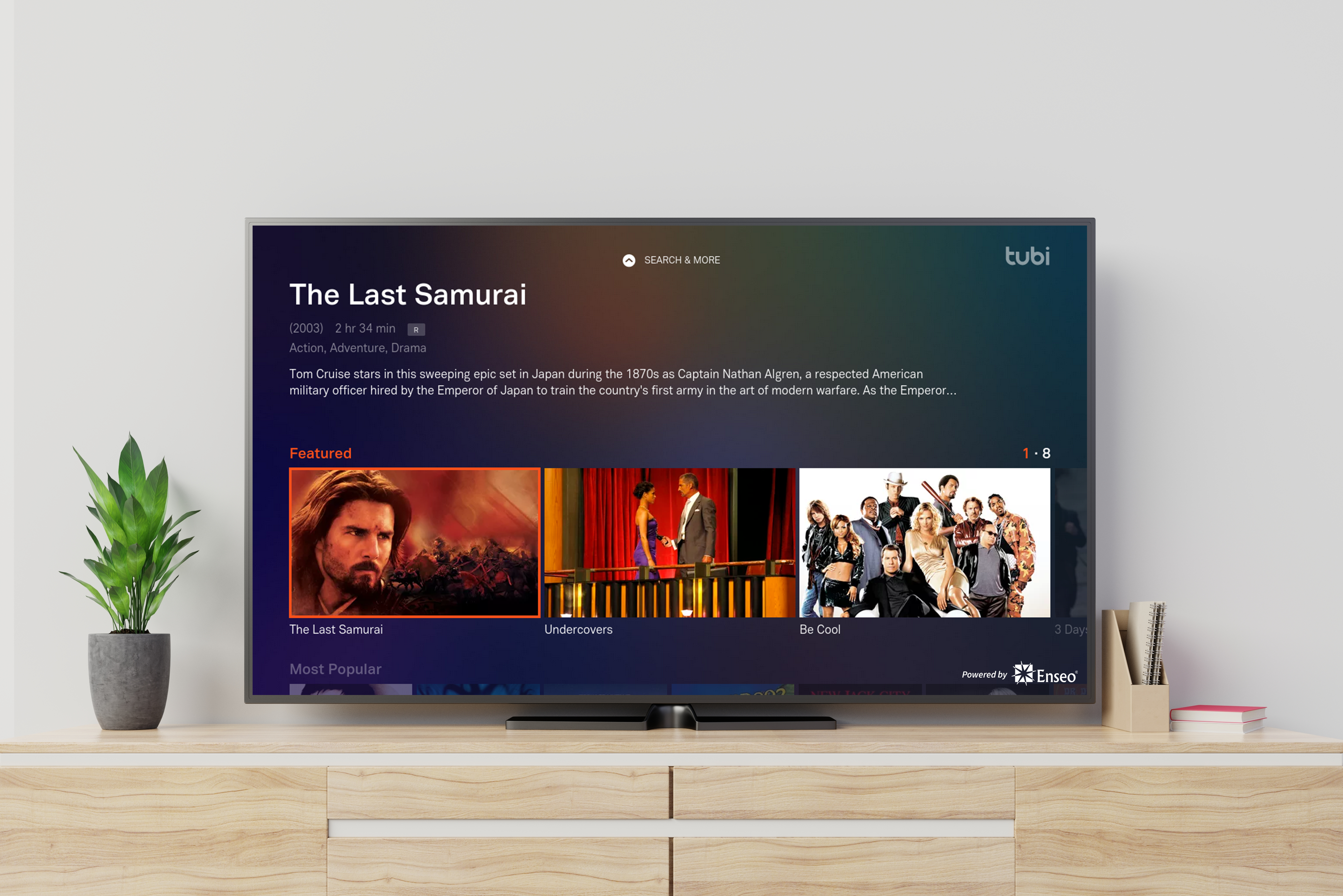Tubi Using TransUnion Data to Personalize Viewing, Ads

The smarter way to stay on top of broadcasting and cable industry. Sign up below
You are now subscribed
Your newsletter sign-up was successful
Streaming service Tubi said it is working with TransUnion to be able to create more personalized content and advertising experience for viewers.

Tubi is among the first video companies to utilize data from TransUnion, best known as a credit-rating agency, the companies said. The data is giving Tubi, whose content is increasingly viewed on a big screen, unique insights into connected TV users on a household level at a time when most personalization products focus on individuals or devices.
“Our primary challenge is thinking about the household and first and foremost thinking about the viewer experience,” said Mark Rotblat, chief revenue officer at Tubi.
Related: Fox Jumps Into Streaming By Agreeing to Buy Tubi
Tubi is getting unique information about ages, gender, language, the number of people in the household, the presence of children and household income, Rotblat said. That data is also useful for ad targeting.
“We see more and more traditional linear TV advertisers moving into OTT and streaming and they often are looking to fill their age and gender mass marketing needs,” said Rotblat, noting that while broadcast and cable’s average age keeps going up, the median age of Tubi’s viewers is 34.
In addition, Tubi can help advertisers send addressable messages only to homes that have children in them, based on the TransUnion data.
The smarter way to stay on top of broadcasting and cable industry. Sign up below
While TV networks and streaming services have been ramping up their data capabilities for years, TransUnion is just getting into the TV business.
“It’s fair to say that TransUnion is not historically a name that you would expect to be in these types of partnerships," said TransUnion executive VP of marketing solutions and media vertical Matt Spiegel.
“There’s a constant debate about defining television, and what we see is that the future of the TV market is obviously not linear. It’s about premium video content across many distribution touch points,” Spiegel said. “That’s where we’re putting our time and attention and we’re certainly very focused on the space.”
Last year, TransUnion acquired TruSignal, a marketing tech platform.
“We’ve worked really hard to ensure that we had an identity graph with the accuracy and completeness that allows us to do these types of partnerships,” Spiegel said. “We not only understand individuals, but we're able to understand the composition of homes.”
Spiegel said TransUnion is working with other video companies he declined to name. "We expect you’ll see more partnerships from us," he said.
The companies got together in January 2019 at the Consumer Electronics Show in Las Vegas. The talks predated any talks with Fox Corp., which in March agreed to buy Tubi for $440 million.
“They were a dark horse,” Rotblat recalled. “They listened to our challenge and what we were trying to solve for. And we did a lot of tests” before forming a partnership with TransUnion.
Tubi already has sophisticated data analytics capabilities. “We have a very deep machine learning and data science core to our team and our product,” Rotblat said. Tubi offers viewers a library of 20,000 titles but those titles are useless without a strong recommendation engine.
Working with TransUnion “adds a layer of data for our algorithms to create better recommendations,” he said.
With more people under orders to stay home to slow the spread of the new coronavirus, more people are streaming, particular for free services with large content libraries. For the first two weeks after people were ordered to stay home, Tubi saw an increase of 22% in viewership and 50% in new viewers.
Jon has been business editor of Broadcasting+Cable since 2010. He focuses on revenue-generating activities, including advertising and distribution, as well as executive intrigue and merger and acquisition activity. Just about any story is fair game, if a dollar sign can make its way into the article. Before B+C, Jon covered the industry for TVWeek, Cable World, Electronic Media, Advertising Age and The New York Post. A native New Yorker, Jon is hiding in plain sight in the suburbs of Chicago.

